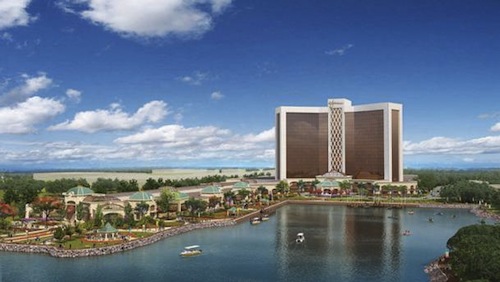 US casino mogul Steve Wynn must like his chances of securing a casino license in Massachusetts after ironing out a host community agreement with the city of Everett. The announcement was made by Mayor Carlo DeMaria early Thursday with the deal still subject to approval by Everett voters in a referendum that has been scheduled for June 22.
US casino mogul Steve Wynn must like his chances of securing a casino license in Massachusetts after ironing out a host community agreement with the city of Everett. The announcement was made by Mayor Carlo DeMaria early Thursday with the deal still subject to approval by Everett voters in a referendum that has been scheduled for June 22.
As part of the agreement, Wynn would have to make $30 million in advance payments to the city to go with more than $25 million annual payment once his casino is up and open for business. In addition, the agreement also includes a number of other conditions and commitments from Wynn, including helping solve potential transportation problems that will come with the building and operating of the casino. Wynn will also be tasked to give Everett residents first dibs, or at the very least, preference, in the hiring of the 8,000 temporary and permanent jobs the casino operator is promising for its project.
Wynn’s proposal is only one of three applications vying for the Eastern Massachusetts license. The company is competing with a Caesars-Suffolk Downs tag team that plans on building a $1 billion casino in the latter’s East Boston racetrack and a group from Milford, both of which have also offered proposals to build a casino in the area. But neither of those two appear to have the financial muscle of Wynn, who appears to be using it to his full advantage with his proposal of building a $1.2 billion, 19-storey hotel and casino that will sit on a 37-acre site just along the Mystic River.
The agreement between Wynn and the city of Everett is still contingent on the former securing a license from the state’s gambling commission. If Wynn doesn’t get it, then the deal’s off the table. But if he does, then the agreement is activated, giving the city tremendous financial support in the form of the $30 million in advance payments that would be made to a Community Enhancement Fund during the construction period to go with annual payments of $20 million in real estate taxes to go with a $5 million annual community impact fee and $250,000 in annual contributions to a foundation that supports local groups. All payments, excluding the $30 million advance, would also be subject to 2.5-percent increases every year.